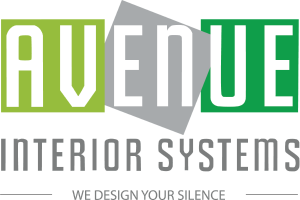9 proven ways to promote safer workplaces with commercial noise control
Celebrated annually on April 28th, the World Day for Safety and Health at Work is a global campaign promoting safe, healthy, and dignified working conditions. Led by the International Labour Organisation (ILO), this initiative aims to raise awareness about occupational safety and health issues worldwide.
The primary objective of the World Day for Safety and Health at Work is to foster a global culture of safety and prevention in workplaces. By highlighting the importance of implementing effective occupational safety and health management systems, the campaign strives to prevent work-related accidents, diseases, and fatalities.
A platform for addressing workplace challenges
On this day, governments, employers’ organisations, workers’ unions, and other stakeholders actively organise a wide range of activities and events to promote workplace safety. These initiatives include seminars, conferences, workshops, training sessions, and awareness campaigns. The focus is on raising awareness about occupational hazards, sharing best practices, and advocating for improved safety standards and regulations.
What’s more, the World Day for Safety and Health at Work serves as a platform to address emerging challenges in the workplace. This includes tackling the impact of new technologies, addressing psychosocial risks, and combating occupational diseases. By encouraging collaboration and knowledge exchange, the campaign aims to enhance workplace safety practices and protect workers’ wellbeing.
While the official celebration of the World Day for Safety and Health at Work takes place on April 28th, it’s important to note that efforts to promote workplace safety and health should be ongoing throughout the year. Continuous initiatives and regulations must be in place to ensure safe working conditions for individuals in all industries.
Why noise control is a crucial part of workplace health and safety
Effective noise control is critical to workplace safety, particularly in commercial settings. Excessive noise in commercial environments can harm productivity, customer satisfaction, and employee health.
Recognising this, it is essential to incorporate noise control measures during the World Day for Safety and Health at Work. Here are some ways to address commercial noise control on this occasion:
1) Awareness campaigns
Businesses and commercial establishments can organise targeted awareness campaigns, highlighting the impact of excessive noise on employees, customers, and overall business operations. Emphasise the importance of implementing noise control measures to create a better working environment.
2) Noise assessments
Businesses should conduct comprehensive noise assessments within their premises. By identifying sources of excessive noise and measuring noise levels, they can better understand how it affects employees, customers, and neighbouring businesses. These assessments provide valuable insights for determining appropriate noise control strategies.
3) Acoustic design and materials
Consider adopting acoustic design principles and materials in commercial spaces. Businesses can incorporate sound-absorbing materials like acoustic panels, ceiling tiles, and carpets to minimise noise reflection and reverberation. Additionally, think about properly placing furniture and fixtures to optimise sound absorption.
4) Soundproofing measures
Implementing soundproofing measures can reduce noise transmission between different areas within commercial premises. This can involve the installation of soundproof partitions, double-glazed windows, or seals on doors and windows to minimise sound leakage and maintain privacy.
5) Equipment and machinery maintenance
It’s important to ensure regular maintenance and servicing of equipment and machinery that generate significant noise. Properly maintained machinery operates more quietly, reducing noise levels in the workplace. Businesses should follow manufacturers’ guidelines and schedules for maintenance and noise control.
6) Noise control policies
Businesses should develop and implement noise control policies that are specifically tailored to their operations. These policies can include guidelines for employees on acceptable noise levels, restrictions on noisy activities during specific hours, and the designation of quiet zones or areas within the premises.
7) Employee training
Training programs can educate employees about the impact of noise on their health and productivity. Workers should be trained to properly use noise control equipment, such as noise-cancelling headphones or barriers, to reduce personal exposure to excessive noise.
8) Collaboration and community engagement
Businesses should collaborate with neighbouring establishments to address any noise issues. By promoting open dialogue and sharing best practices, businesses can effectively mitigate noise concerns and maintain harmonious relationships within the community.
9) Compliance with regulations
Compliance with local noise regulations and standards is vitally important. Businesses should familiarise themselves with relevant noise control regulations and ensure adherence. Communities can advocate for stricter noise control regulations where necessary.
Talk to Avenue about commercial noise control for your workplace
By prioritising commercial noise control during the World Day for Safety and Health at Work, businesses can create more comfortable and productive environments for their employees, and enhance their overall customer experience.
Implementing noise control measures not only benefits the wellbeing of individuals but also contributes to the long-term success and sustainability of commercial enterprises.
For more information about noise control solutions for your workplace, call us today on
1300 827 177 or get in touch online.



